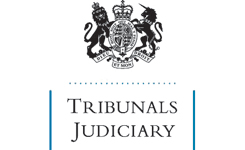|
Notes:
|
Reported as [2010] AACR 2
Housing benefit – rent restrictions – exemption where housing-related support provided – whether accommodation can be “provided” by a body other than the landlord
Housing benefit – rent restrictions – exemption where housing-related support provided – whether undertaking maintenance can be the provision of support
The three claimants, who had learning disabilities, had tenancies in a house of which Care Housing Association Limited (CHA) was the landlord. Care, support and supervision were provided by care staff employed by Dawaking Care Ltd (Dawaking), who had been commissioned by Lancashire County Council (LCC), the body which had statutory duties to provide accommodation, care and support for the claimants. The three claimants applied for housing benefit. The local authority restricted the eligible rent to the local reference rent under regulation 13 of the Housing Benefit Regulations 2006 (formerly regulation 11 of the Housing Benefit (General) Regulations 1987 as in force since 2 January 1996). The claimants argued on appeal that their accommodation was exempt from rent restriction by virtue of the saving provision in regulation 10 of the Housing Benefit (General) Amendment Regulations 1995. Regulation 10(6), as amended in 1999, defines exempt accommodation as including accommodation provided by certain bodies where the landlord or a person acting on its behalf also provides the claimant with care, support or supervision. An appeal tribunal allowed the appeals, finding that CHA did itself provide “support” to more than a minimal extent. The local authority appealed. By an interim decision the Upper Tribunal set aside the tribunal’s decision as wrong in law and directed a re-hearing before the Upper Tribunal. It was argued on behalf of the claimants (i) that the housing-related support was provided “on behalf of” CHA; (ii) that because LCC “commissioned” CHA to provide the accommodation and Dawaking to provide the care etc, LCC provided the accommodation and the care etc was provided on LCC’s behalf and (iii) that although Dawaking provided the care and supervision, and the bulk of the support, there was some housing-related support which was provided by CHA itself, either by its own employees or by a property repair company on its behalf.
Held, allowing the appeal, but substituting a decision to the same effect, that:
1. (following R(H) 2/07) the housing-related support which Dawaking provided was not provided “on behalf of” CHA (paragraph 55);
2. the definition of “exempt accommodation” in paragraph 4(1) of Schedule 3 to the Housing Benefit and Council Tax Benefit (Consequential Provisions) Regulations 2006 is in the context of a provision specifying how the amount of rent eligible for housing benefit is to be determined and its natural meaning is therefore that accommodation is provided by the owner or other person who, but for the grant to the claimant of the tenancy or licence, would have the right to possession, and therefore the right to permit occupation of it, and to whom the obligation to pay rent or licence fee is owed, and does not encompass persons who have played a part, however important, in the accommodation becoming available, but who have no proprietary interest in the accommodation and no entitlement to the rent (CH/3900/2005 considered) (paragraphs 56 to 65);
3. it was at the date of the Council’s decisions contemplated and intended that CHA would provide support to the claimants in the form of (i) undertaking repair and maintenance works either going beyond its obligations under the tenancy agreements, or which it would not have had to undertake if the tenants had been without disability; (ii) undertaking adaptations to meet the claimants’ needs and (iii) advising and assisting in relation to welfare benefits. As those items of support did provide some significant benefit to the tenants and were more than minimal, they could not be ignored by application of the de minimis principle and the claimants’ accommodation was therefore “exempt accommodation” (paragraphs 66 to 100).
|
